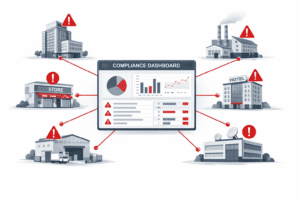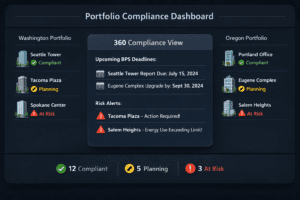I. Introduction
In a highly competitive world where businesses constantly strive for excellence and market share, the importance of regulatory frameworks cannot be understated. Among these, benchmarking laws play a pivotal role, setting standards for companies to aspire to and measure themselves against. These regulations are not merely about compliance; they are about fostering a competitive, efficient, and innovative market landscape. This blog seeks to peel back the layers of these laws and their relation to the concept of market domination, providing readers with a deeper understanding of how they work together to shape our economy. With this exploration, we aim to demystify these concepts and present a clear picture of their influence on each other and the broader market.
II. Understanding Benchmarking Laws
Explanation of Benchmarking Laws
At its core, benchmarking is about learning, improving, and aiming for excellence based on the best practices of peers and industry leaders. Benchmarking laws, therefore, are legal mandates that require companies to measure and report on specific performance indicators, with the goal of improving industry-wide standards. These laws serve as a baseline for performance assessments and enable businesses to set realistic and strategic targets for improvement.
History and Development of Benchmarking Laws
The inception of benchmarking in business can be traced to the late 1970s and early 1980s, when companies began to look externally to gain insights into best practices (Xerox Corporation is often credited with pioneering benchmarking practices). Legislation formalizing benchmarking came later, as governments recognized the need for standardized metrics to drive industry advancements and protect stakeholders. Over time, these laws have evolved to cover various sectors, including energy, healthcare, and finance.
How Benchmarking Laws Work
Benchmarking laws require organizations to submit data on multiple aspects of their operations, ranging from resource utilization to customer satisfaction metrics. This data is then compared against predefined industry standards or the performance of leading companies. Regulatory bodies may publish this data to foster transparency and encourage companies to engage in continuous improvement.
Significance of Benchmarking Laws in Market Competition
These regulatory measures can radically alter the dynamics of a market, setting a high bar for performance and compliance. Companies are driven to innovate and improve, knowing that their competitors are held to the same standards. This creates a more level playing field, especially for new entrants or smaller players who can use these benchmarks to strategically position themselves in the market.
III. The Concept of Market Domination
Understanding Market Dominance
Market dominance refers to a situation where a single company or group of companies holds a significant enough share of a market to influence its direction and the competitive landscape. This can manifest in various forms, such as price-setting power, high barriers to entry for competitors, or significant control over supply chains.
Factors Influencing Market Dominance
Several factors can contribute to a company’s rise to dominance, including innovation, brand loyalty, superior product offerings, and operational efficiencies. Notably, these are often the same areas where benchmarking laws focus, suggesting a symbiotic relationship between the two.
The Pros and Cons of Market Dominance
While market dominance can lead to benefits such as economies of scale and a strong hold in the market, it can also have downsides. These may include reduced competition, higher prices for consumers, and a potential lack of innovation as dominant players become less incentivized to improve upon their leading position.
IV. The Intersection of Benchmarking Laws and Market Domination
How Benchmarking Laws Impact Market Dominance
Benchmarking laws can both challenge and fortify market leadership. By obliging leaders to maintain transparency and strive for continuous improvement, these laws keep the pressure on top players. Conversely, they can also entrench leaders by enabling them to set benchmarks that are challenging for newer entrants to meet.
Real-world Examples of the Effect of Benchmarking Laws on Market Domination
In the realm of energy benchmarking, laws such as the EU’s Energy Performance of Buildings Directive (EPBD) have had a significant impact. By requiring energy efficiency benchmarks, the directive has catalyzed innovation in construction and energy management systems, preventing any single player from dominating by default due to a lack of alternatives or innovation.
Explaining the Balance Between Benchmarking and Market Dominance
Striking the right balance is critical. Benchmarking laws must be designed to promote competition without being overly burdensome. They should enforce standards that encourage innovation and efficiency, rather than creating barriers that only the most resource-rich companies can overcome.
V. The Role of Benchmarking Laws in Preventing Unfair Market Domination
Establishing the Link Between Benchmarking Laws and Fair Market Competition
Benchmarking laws are integral to preventing unfair market domination by providing a transparent framework for performance measurement. They are the yardsticks by which companies can be held accountable to industry standards, ensuring that market domination is a result of superior performance rather than anti-competitive practices.
The Role of Regulatory Bodies in Enforcing Benchmarking Laws
Enforcing these laws falls to regulators such as the Federal Trade Commission in the United States or the European Commission in the EU. These bodies are responsible for ensuring that benchmarking laws are enforced equitably, offering protections against the establishment of monopolies (FTC’s role in maintaining competition).
VI. The Impact of Benchmarking Laws on Market Innovation and Growth
How Benchmarking Laws Can Spur Innovation
Companies, when faced with the challenge of meeting benchmark standards, are often pushed to innovate. This can lead to breakthroughs in technology, processes, and business models, fostering a culture of continuous improvement and growth.
The Influence of Benchmarking Laws on Market Growth
Through the adoption of best practices and efficient operations, benchmarking laws can contribute to the overall health and expansion of a market. They can drive growth by ensuring that all players are striving towards higher levels of performance, benefiting consumers and businesses in the process.
VII. Challenges and Controversies surrounding Benchmarking Laws
The Debate Surrounding the Efficiency of Benchmarking Laws
While some view benchmarking laws as a boon to industry standards and competition, others see them as potentially burdensome regulations that could hamper innovation if not carefully crafted and implemented.
Challenges in Implementing and Enforcing Benchmarking Laws
The complexity of these laws can be daunting, requiring sophisticated systems for tracking and reporting. Ensuring accuracy and honesty in this reporting is also a significant challenge for both businesses and regulators.
The Loophole in Benchmarking Laws
No law is perfect, and benchmarking laws are no exception. There can be loopholes that allow some companies to appear compliant without truly embracing the spirit of the regulation or actually improving their performance.
Suggestions for Improving Current Benchmarking Laws
For these laws to be truly effective, they must evolve with the industries they regulate. This may include the development of more advanced metrics and the integration of real-time data analysis to provide a clearer picture of industry performance.
VIII. Conclusion
The link between benchmarking laws and market domination is both intricate and influential. As we peel back the layers and examine the nuances of this relationship, it is clear that these laws hold the potential to drive industry-wide improvements and innovations while also ensuring a level playing field that benefits both businesses and consumers. However, constant vigilance and adaptation are essential to ensure that these regulations fulfill their intended purpose without stifling growth. Your engagement in this discussion is invaluable. Share your perspectives, insights, and experiences in the comments below, and let’s foster a robust dialogue on the future of benchmarking laws and market competition.
VertPro.com serves as a resourceful platform for property owners and managers seeking to enhance their buildings’ energy efficiency. The site offers a range of services, including Commercial Energy Audits, Benchmark Compliance consultancy, and a Construction Marketplace. At the heart of VertPro® is a suite of SaaS technology-based solutions designed to assist in navigating the complexities of Energy Benchmarking and Energy Audits/RCx Plus, while ensuring adherence to over 60 Energy Benchmarking and Energy Efficiency Laws across the country.
For those looking to improve their property’s energy usage and operational value, VertPro.com provides a diverse array of tools and information. The site aims to facilitate a better understanding of energy efficiency practices and legislation, helping building owners and property managers make informed decisions about their energy strategies while complying with all energy ordinances and laws.

















